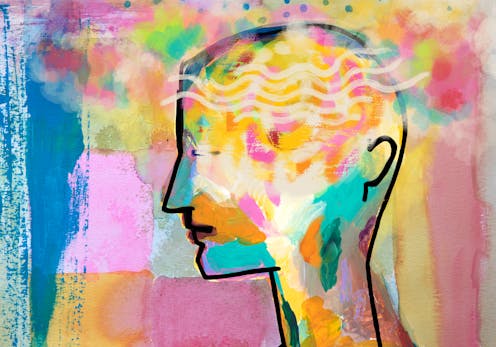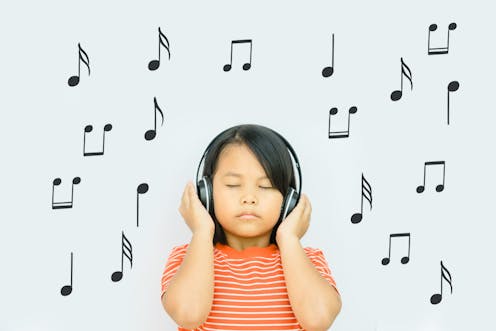Introduction
Virtual music therapy is a growing field that has shown great promise in helping children with special needs. Music therapy is a well-established form of therapy that uses music to address physical, emotional, cognitive, and social needs. It has been found to be particularly effective for children with special needs, as it provides a non-verbal and non-threatening way for them to express themselves and engage with others. With the advent of virtual platforms, music therapy can now be accessed remotely, allowing children to receive the benefits of therapy from the comfort of their own homes.
Music therapy is an important tool for children with special needs because it can help them develop important skills and improve their overall well-being. Many children with special needs struggle with communication, socialization, behavior management, and sensory integration. Music therapy provides a safe and supportive environment for them to work on these areas, using music as a medium for self-expression and growth. By engaging in music therapy, children with special needs can experience improved mood, increased socialization, enhanced cognitive development, and better behavior management.
What is virtual music therapy and how does it work?
Virtual music therapy is a form of therapy that utilizes technology to provide music therapy sessions remotely. It allows children to engage in therapy from the comfort of their own homes, eliminating the need for travel and providing a convenient option for families. Virtual music therapy sessions can be conducted through video conferencing platforms, where the therapist and child can interact in real-time. The therapist can guide the child through various musical activities, such as singing, playing instruments, and movement exercises.
There are different types of virtual music therapy sessions that can be tailored to the needs and preferences of the child. Individual sessions involve one-on-one interaction between the child and the therapist, allowing for personalized attention and targeted interventions. Group sessions involve multiple children participating in the therapy together, providing opportunities for socialization and peer interactions. Hybrid sessions combine elements of both individual and group sessions, allowing for a balance between individualized attention and social engagement.
The benefits of virtual music therapy for children with special needs
Virtual music therapy has been found to have numerous benefits for children with special needs. These benefits extend to various areas of development, including mood and emotional regulation, socialization and communication skills, cognitive development and academic performance, and behavior management and sensory integration.
Improved mood and emotional regulation: Music has a powerful impact on emotions and can help children with special needs regulate their emotions. Through music therapy, children can explore and express their emotions in a safe and non-threatening way. They can learn to identify and label their emotions, as well as develop strategies for managing and coping with them. This can lead to improved mood and overall emotional well-being.
Increased socialization and communication skills: Music therapy provides a unique opportunity for children with special needs to engage in social interactions and develop communication skills. Through music, children can learn to listen, take turns, and collaborate with others. They can also practice verbal and non-verbal communication, such as singing, playing instruments, and using body movements. This can lead to increased socialization and improved communication skills.
Enhanced cognitive development and academic performance: Music therapy has been found to have a positive impact on cognitive development and academic performance. Engaging in musical activities can stimulate various areas of the brain, including those responsible for memory, attention, and problem-solving. Music therapy can also improve auditory processing skills, which are important for language development and academic success. By incorporating music into learning activities, children with special needs can enhance their cognitive abilities and improve their academic performance.
Better behavior management and sensory integration: Many children with special needs struggle with behavior management and sensory integration. Music therapy can provide a structured and predictable environment that helps children regulate their behavior and integrate sensory information. Through music, children can learn self-control, impulse management, and coping strategies for sensory overload. This can lead to better behavior management and improved sensory integration.
How virtual music therapy can improve communication skills
Music therapy can be a powerful tool for improving communication skills in children with special needs. Music has a universal language that transcends verbal communication and allows for non-verbal expression. Through music therapy, children can develop various communication skills, such as listening, taking turns, and expressing themselves through singing, playing instruments, and movement.
Music therapy can also target specific communication goals, depending on the needs of the child. For example, a child who struggles with expressive language can work on using music to communicate their thoughts and feelings. They can learn to use rhythm, melody, and lyrics to express themselves and engage with others. A child who struggles with receptive language can work on listening skills and following directions through musical activities. They can learn to attend to auditory cues and respond appropriately to musical prompts.
By incorporating music into communication therapy, children with special needs can develop important communication skills in a fun and engaging way. They can build confidence in their ability to communicate and connect with others, which can have a positive impact on their overall well-being.
The role of music in emotional regulation and behavior management
Music has a powerful impact on emotions and can be used as a tool for emotional regulation and behavior management. The rhythm, melody, and lyrics of music can evoke different emotions and help children with special needs identify and express their feelings. Through music therapy, children can learn to regulate their emotions and manage their behavior in a safe and supportive environment.
Music therapy can help children with special needs develop emotional regulation skills by providing them with opportunities to explore and express their emotions. They can use music to create a musical representation of their emotions, allowing them to externalize and process their feelings. They can also learn relaxation techniques, such as deep breathing and progressive muscle relaxation, which can help them calm down and manage their emotions.
In addition to emotional regulation, music therapy can also help children with special needs develop behavior management skills. The structure and predictability of music can provide a framework for children to follow and adhere to. They can learn to follow musical cues, such as starting and stopping at specific points, which can help them develop self-control and impulse management. They can also learn to use music as a tool for redirection and distraction, helping them shift their focus away from challenging behaviors.
Virtual music therapy as a tool for sensory integration
Sensory integration is the process of organizing and interpreting sensory information from the environment. Many children with special needs struggle with sensory integration, which can affect their ability to process and respond to sensory stimuli. Music therapy can be a valuable tool for addressing sensory integration challenges and helping children with special needs develop sensory processing skills.
Music therapy provides a structured and predictable environment that can help children with special needs regulate their sensory experiences. The rhythm, melody, and tempo of music can provide a consistent and organized sensory input, which can help children integrate and process sensory information. Through music therapy, children can engage in activities that target specific sensory goals, such as auditory discrimination, tactile exploration, and proprioceptive input.
For example, a child with sensory processing disorder may struggle with auditory discrimination, making it difficult for them to distinguish between different sounds. In music therapy, they can engage in activities that involve listening to and identifying different musical instruments or sounds. This can help them develop their auditory discrimination skills and improve their ability to process and respond to auditory stimuli.
By incorporating music into sensory integration therapy, children with special needs can develop important sensory processing skills and improve their ability to navigate and engage with their environment.
The importance of individualized treatment plans in virtual music therapy
Individualized treatment plans are crucial in virtual music therapy to ensure that the therapy is tailored to the specific needs and goals of each child. Every child is unique and may have different strengths, challenges, and preferences. By creating individualized treatment plans, music therapists can address the specific needs of each child and provide targeted interventions.
Individualized treatment plans in virtual music therapy typically involve an initial assessment to gather information about the child’s strengths, challenges, and goals. The therapist will then develop a treatment plan that outlines the specific interventions and strategies that will be used to address the child’s needs. The treatment plan may include specific musical activities, goals, and objectives, as well as a timeline for progress monitoring and evaluation.
For example, a child with autism may have goals related to socialization and communication. The treatment plan may include activities that focus on turn-taking, joint attention, and imitation, using music as a medium for engagement and interaction. The therapist may also incorporate specific songs or musical prompts that are tailored to the child’s interests and preferences, to increase motivation and engagement.
By creating individualized treatment plans, music therapists can ensure that the therapy is personalized and meaningful for each child. This can lead to more effective outcomes and better overall progress.
How virtual music therapy can enhance social skills and peer interactions
Music therapy can be a powerful tool for enhancing social skills and peer interactions in children with special needs. Music has a unique ability to bring people together and create a sense of connection and belonging. Through music therapy, children can engage in activities that promote socialization and peer interactions in a fun and engaging way.
Music therapy provides a safe and supportive environment for children to practice social skills and engage with others. Through musical activities, such as singing, playing instruments, and movement exercises, children can learn to listen, take turns, and collaborate with others. They can also practice verbal and non-verbal communication, such as making eye contact, using body movements, and responding to musical cues.
Group music therapy sessions can be particularly beneficial for enhancing social skills and peer interactions. In group sessions, children have the opportunity to interact with their peers, engage in joint activities, and learn from each other. They can practice social skills, such as sharing, cooperation, and empathy, in a supportive and structured environment. Group sessions also provide opportunities for children to develop friendships and build social connections, which can have a positive impact on their overall well-being.
By incorporating music into social skills therapy, children with special needs can develop important social skills and improve their ability to interact and connect with others.
The impact of virtual music therapy on cognitive development and academic performance
Music therapy has been found to have a positive impact on cognitive development and academic performance in children with special needs. Engaging in musical activities can stimulate various areas of the brain, including those responsible for memory, attention, and problem-solving. Music therapy can also improve auditory processing skills, which are important for language development and academic success.
Through music therapy, children can engage in activities that target specific cognitive goals, such as memory, attention, and problem-solving. For example, a child with attention deficit hyperactivity disorder (ADHD) may struggle with sustaining attention and focusing on tasks. In music therapy, they can engage in activities that require sustained attention, such as playing an instrument or following a musical score. This can help them develop their attention skills and improve their ability to sustain focus.
Music therapy can also enhance academic performance by incorporating music into learning activities. For example, a child who struggles with reading comprehension can engage in activities that involve singing or chanting the text, which can help them engage with the material and improve their understanding. A child who struggles with math concepts can engage in activities that involve rhythm and counting, which can help them grasp mathematical concepts in a more concrete and tangible way.
By incorporating music into cognitive development and academic therapy, children with special needs can enhance their cognitive abilities and improve their academic performance.
The role of parents and caregivers in virtual music therapy sessions
Parents and caregivers play a crucial role in virtual music therapy sessions for children with special needs. They can provide support and encouragement to their child, as well as reinforce the skills and strategies learned in therapy. By actively participating in the therapy process, parents and caregivers can help maximize the benefits of virtual music therapy.
Parents and caregivers can be involved in virtual music therapy sessions by observing and participating in the sessions. They can watch the therapy sessions and learn from the therapist’s interventions and strategies. They can also actively participate in the sessions by engaging in musical activities with their child, such as singing, playing instruments, and movement exercises. This can help create a sense of connection and bonding between the child and their parent or caregiver.
Outside of therapy sessions, parents and caregivers can support their child’s progress by incorporating music into their daily routines and activities. They can play music at home, sing songs together, and encourage their child to engage in musical activities. They can also reinforce the skills and strategies learned in therapy, such as turn-taking, listening, and self-regulation. By incorporating music into their daily lives, parents and caregivers can help their child generalize the skills learned in therapy and continue their progress outside of the therapy sessions.
By actively participating in virtual music therapy sessions and incorporating music into their daily routines, parents and caregivers can support their child’s progress and maximize the benefits of therapy.
The future of virtual music therapy and its potential for expanding access to care
Virtual music therapy has the potential to greatly expand access to care for children with special needs. Traditional in-person therapy can be challenging for families due to factors such as distance, transportation, and scheduling conflicts. Virtual music therapy eliminates these barriers by allowing children to receive therapy from the comfort of their own homes.
Virtual music therapy also has the potential to reach children in remote or underserved areas who may not have access to specialized therapy services. By utilizing technology, music therapists can provide therapy to children who may otherwise not have the opportunity to receive it. This can help bridge the gap in access to care and ensure that all children have the opportunity to benefit from music therapy.
Furthermore, technology advancements can enhance the virtual music therapy experience and make it even more effective. For example, virtual reality technology can create immersive and interactive environments for therapy sessions, allowing children to engage in virtual musical experiences. Artificial intelligence can also be used to personalize and adapt therapy interventions based on the child’s individual needs and progress. These advancements have the potential to revolutionize virtual music therapy and further improve outcomes for children with special needs.
Conclusion
Virtual music therapy is a valuable tool for children with special needs, providing them with the opportunity to engage in therapy from the comfort of their own homes. Music therapy has been found to have numerous benefits for children with special needs, including improved mood and emotional regulation, increased socialization and communication skills, enhanced cognitive development and academic performance, and better behavior management and sensory integration.
Through virtual music therapy, children can develop important skills and improve their overall well-being. Music therapy can improve communication skills, enhance emotional regulation and behavior management, address sensory integration challenges, and promote social skills and peer interactions. By incorporating music into therapy, children with special needs can develop important skills in a fun and engaging way.
Parents and caregivers play a crucial role in virtual music therapy, providing support and reinforcement for their child’s progress
Find out how Torongo Therapyplus can help you with your needs. Get in touch with us at smile@torongo.life, or call us on 02 8809 9965.































